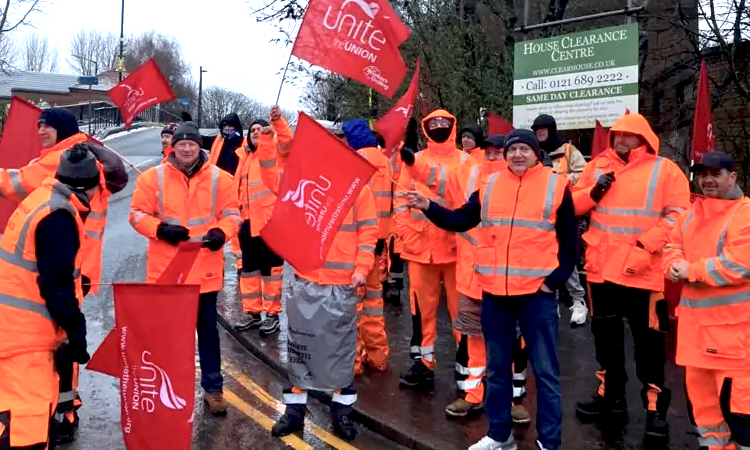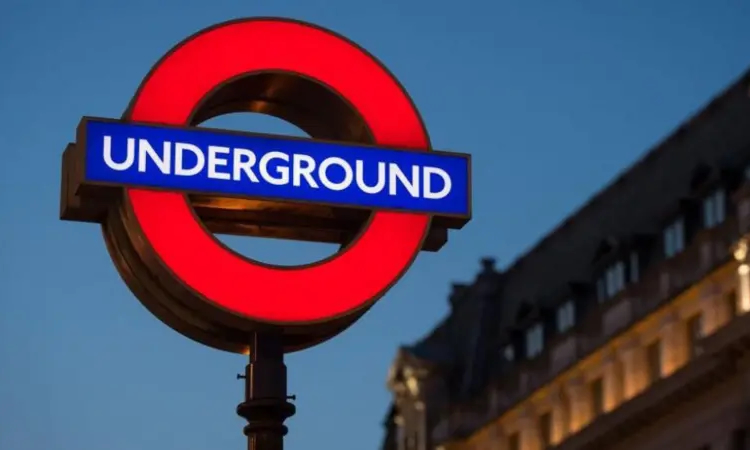This article is reproduced from the Class Consciousness Project, with thanks.
*****
The British media, almost in totality, would have us believe that, when there are periods of class struggle the likes of which we are currently seeing in this country, poor downtrodden workers are being led by the nose and deprived of their wages by those who they like to coin as the ‘trade union barons’. The idea that handsomely remunerated, distant and unaccountable would-be communist general secretaries would appropriate workers’ grievances to start a revolution is appealing to the editors of these establishment organs and their dwindling readerships.
But is there an unwitting kernel of truth in their bloviating hit pieces? Could it be that there really are union barons – general secretaries of Britain’s trade unions that have been regularly and handsomely rewarded by the state in the form of peerages, knighthoods and august honours like ‘Officer of the Most Excellent Order of the British Empire’? The answer is yes, and here’s why.
Trade unions exist fundamentally because of the contradiction in the capitalist system between the interests of those who exploit and those who are exploited. They are a product of class contradictions in the capitalist system. In Britain and western Europe, where trade unions developed as a reaction to capitalist exploitation, they did so before the rise of socialist parties and their outlook has been shaped on that basis. As Joseph Stalin said in a speech he made in 1924:
“Still more difficult and peculiar are the conditions under which the trade unions are developing in the west.
“Firstly, they are narrow owing to their ‘tried’ craft union practice and are hostile to socialism, for having arisen before the socialist parties, and having developed without the aid of the latter, they are accustomed to plume themselves in their ‘independence’, they place craft interests above class interests and refuse to recognise anything beyond a ‘penny a day’ increase in wages.
“Secondly, they are conservative in spirit and hostile to all revolutionary undertakings, for they are led by the old, venal trade union bureaucracy, which is fed by the bourgeoisie and is always ready to place the trade unions at the service of imperialism.
“Lastly, these trade unions, united around the Amsterdam reformists [the reconstituted Second International], constitute that vast army of reformism which serves as a prop for the present day capitalist system.” (Concerning the international situation, 20 September 1924)
The British trade union movement, in the almost 100 years since Stalin made this speech, has proven him to be wholly correct. The most recent example of the movement’s fealty to British imperialism is in its collective stance on the Russian special military operation in Ukraine, which has seen trade unions donating their members’ money to Ukrainian trade union organisations, members preventing Russian ships from docking in British ports and backing a march which took place in London last year, at which were calls were made for the escalation of armed conflict in the region and for Russian president Vladimir Putin to be overthrown and executed.
The union leaderships’ lack of condemnation for the actions of sizeable numbers of those at that march can only be interpreted as tacit approval of their conduct.
The British trade union movement has also distinguished itself in its service to the anticommunist Labour party throughout the last century, and has actively colluded with the Labour government’s privatisation of the NHS during the years of Tony Blair’s premiership, accepting guarantees on job protection in exchange for waving through without challenge the proliferation of private finance initiative (PFI) contracts, which lumbered the health service with billions of pounds in debt and interest payments, the servicing costs of which will increase with every hike in interest rates as the state battles against runaway inflation.
Services rendered … but to whom?
The list of former general secretaries who have been rewarded for their loyalty and service to the British state include luminaries like Ernest Bevin, who served as general secretary of the Transport and General Workers’ Union (TGWU) before joining the wartime coalition government as minister of labour and national service. A rabid imperialist and anticommunist, he played a role not only in the founding of the North Atlantic Treaty Organisation (Nato), but also of the Information Research Department, which spread pro-colonial and anticommunist propaganda.
He was also a staunch supporter of Britain’s nuclear arms programme in the postwar period. For his service to British imperialism, Bevin was appointed Lord Privy Seal, despite his proclaimed ‘reluctance’ to assume the role.
Frank Chapple was the general secretary of the Electric, Electronic, Telecommunications and Plumbers’ Union (EETPU) from 1968 until his retirement from the post in 1984. A former Communist party member until the Hungarian counter-revolution of 1956, he became a staunch anticommunist and was part of a relentless purge of Communist party members from within the Electrical Trades Union, which merged with the Plumbing Trades Union to become the EETPU in 1968.
He helped bring a lawsuit against ETU general secretary Frank Foulkes, which alleged that vote-rigging had taken place in the 1959 general secretary election, which was successful, throwing Foulkes out of his posts and replacing him with his anticommunist electoral opponent, Jock Byrne.
Chapple set in train not only the anticommunist purge of members within his own union, but the anti-Irish racism, class-collaborationism, state collusion and betrayal of workers in struggle for which the EETPU became notorious. Eventually, even the Trades Union Congress (TUC) was compelled to expel them in 1987. For his services to the cause of anticommunism and the state, Chapple was made Baron Chapple of Hoxton in 1985.
Bill Morris was the general secretary of the TGWU from 1992 to 2003. Morris joined the trade union when he worked in the car industry, becoming a shop steward for the union and then a full time official. A staunch ally of the Labour party, even during the Blair years, Morris was appointed as a non-executive director of the Bank of England in 1998.
The TGWU and Bill Morris were heavily criticised in 1997 by the journalist John Pilger (whom the TGWU labelled as “ultra left”) when 320 employees of the Mersey Docks and Harbour Company were sacked for refusing to cross a picket line that had been organised at Torside Ltd, where workers were on strike to protest against the sacking of 80 dockworkers. The TGWU abdicated its responsibility to the strikers, hiding behind anti-trade union legislation and claiming that the union had an obligation to “not engage in activities for which it has no immunity or legal protection”.
Bill Morris became Barron Morris of Handsworth in 2006. He retired from the House of Lords in 2020.
Paul Kenny was the general secretary of the General, Municipal and Boilermakers’ Union (GMB) from 2005 until 2016. The GMB, a right-wing trade union, nominated Andy Burnham for the leadership of the Labour party, maintained an anti-Corbyn position throughout the latter’s failed tenure as Labour leader and backed right-winger Owen Smith when he challenged Corbyn for the leadership in the ‘Chicken coup’ of 2016.
Kenny could certainly talk a good game. In 2015, he stated that he was prepared to go to prison if the government’s Trade Union Bill became law and pickets were fined for not wearing armbands. Kenny was knighted later in 2015 as part of the Queen’s birthday honours. He was nominated by Labour leader Ed Miliband.
It’s also notable that transport union TSSA (Transport Salaried Staffs Association), despite being the smallest and by far the least militant of the three transport unions, has had more of its general secretaries rewarded with peerages, knighthoods and honours of the Most Excellent Order of the British Empire than RMT and Aslef (the train drivers’ union) combined.
The Trades Union Congress is arguably the single entity that brings all trade unionists together in complete agreement – although none of us can see the point in it. However, for those that ascend to its most senior levels, it is a gateway to the ermine and red benches of the House of Lords.
Going all the way back to 1946, general secretaries of the TUC have almost routinely been awarded with peerages, including Walter Citrine (general secretary from 1925 to 1946), Vic Feather (1969 to 1973) and Len Murray (1973 to 1984). Frances O’Grady, who marked her term as general secretary by colluding with rail operator Southern and train drivers’ union Aslef to negotiate away the jobs of RMT members, was unequivocal in her support for Britain’s continued membership in the imperialist European Union trading bloc, and was a keen if not entirely outspoken supporter of the anti-worker Labour party, became Baroness O’Grady of Upper Holloway last year.
TUC a part of the capitalist state machinery
Trade unions remain the biggest organisers of working-class people in the country. Six million people are members of trade unions, but these unions are hard-wired into the capitalist system and, critically, so are their bureaucracies.
The leaders are rewarded for their service to that system while workers in struggle are repeatedly betrayed and sold out. The fact that these bureaucrats can remain at senior levels within their trade unions for long enough to cement their positions and set themselves up for honours in the future can only be prevented when rank and file members ascend to the highest levels of trade unions and then return to the rank and file, creating a ‘churn’ of activists that might at least to a degree prevent bureaucratisation.
One of the most notable non-conformists was the late and great Rodney Bickerstaffe, who was the general secretary of the National Union of Public Employees from 1982 to 1993 and Unison from 1996 to 2001. He refused a peerage in 2007.
[And, of course, we must add that the greatest of all the non-conformists in recent history was miners’ leader Arthur Scargill, who led a titanic struggle for his members, their industry, and for British industrial jobs in general that was only lost as a result of the betrayal of the wider trade union movement and the Labour party leadership – Ed.]
A list of trade union bureaucrats rewarded with honours can be found here.















